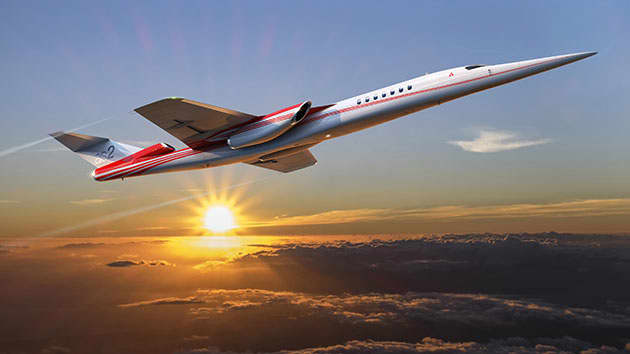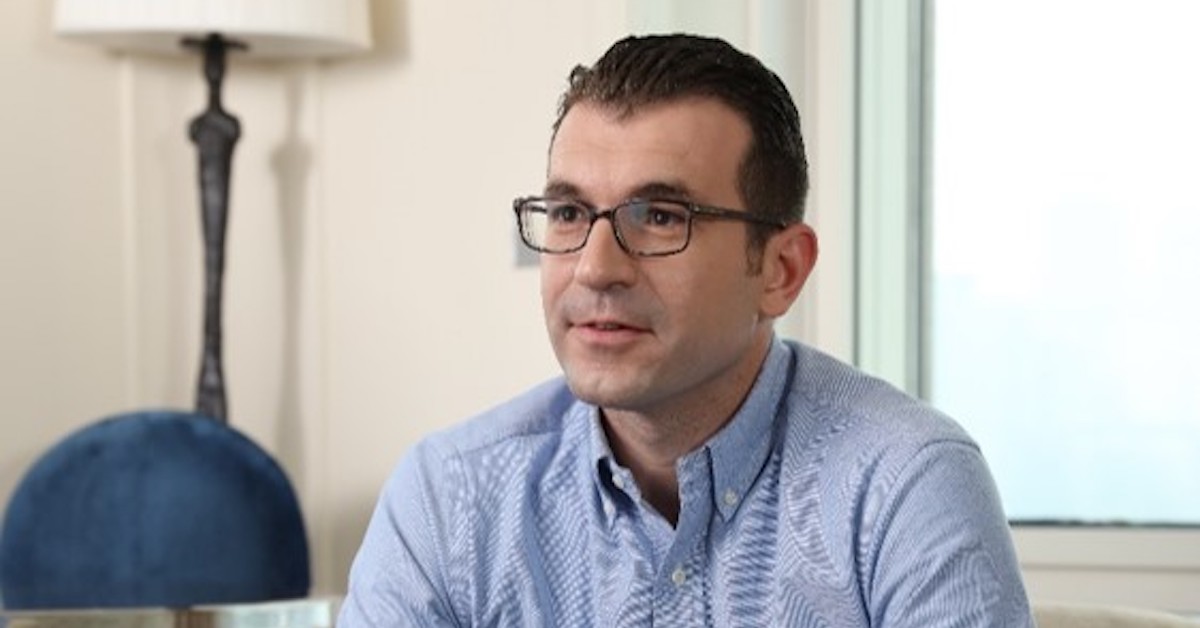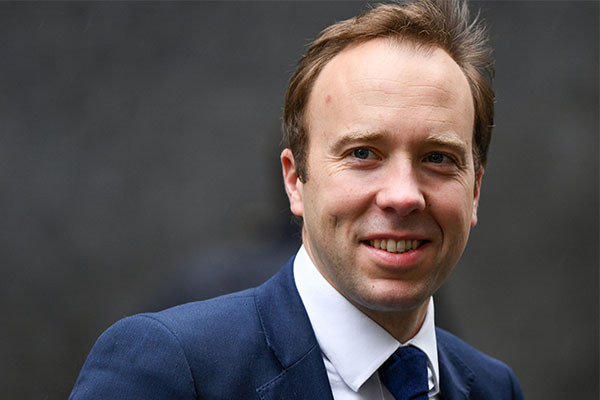Flight Centre Ready to Invest in More Innovation
FCM and Corporate Traveler parent company Flight Centre Travel Group has reported a year of growth and acquisitions. The group's chief experience officer, John Morhous, spoke with BTN's Michael B. Baker to provide an operational update and a hint...
/Management/JohnMorhous%20232x232.png?tr=w-1200%2Cfo-auto)
Flight Centre Travel Group's Morhous discusses:
Providing platform consistency with ShepBuilding for the future of NDC with TPConnectsWhy a subscription pricing model hasn't caught on in the industryFCM and Corporate Traveler parent company Flight Centre Travel Group has reported a year of growth and acquisitions, closing out 2021 with the acquisition of software provider Shep and following up a few months later with a majority stake in travel technology firm TPConnects Technologies. The group's chief experience officer, John Morhous, spoke with BTN executive editor Michael B. Baker during the recent Phocuswright Conference to provide an update on the acquisitions and give a hint toward future areas of investment.
BTN: How do you determine where to invest in acquisitions?
John Morhous: We for a few years now had a pretty strong innovation incubation process. We bring in and work with early-stage startups and try to understand what's going on in the market, what kind of business problems they're looking to solve, and we work with them and partner within our own internal business units to solve our own problems.
Shep is just an example of one that went through that process and fully graduated on the other end. We started off with just a simple commercial relationship with them, with an interesting use case and a couple customers that were interested. We had enough interest that we decided to take an equity position in them. We did an investment with them a couple years back, so we owned a small part of the business and helped build the value of the brand and what the tool's doing. Then, we decided this is completely complementary to our product vision and where we're looking to do, so let's acquire the rest of them. That's the overall strategy that we do.
All the major investments that we've done go through a similar process. We're not like a corporate VC that goes out and puts money in a bunch of places. We're very strategic with the direction that we go, with the stuff we're working on. It's very vertical in terms of adherence to some of the core competencies we have. Being at [Phocuswright], you see all the innovation happening across the board, and if you don't have a process around how you look at that, evaluate it and see where the matches are within your business and see that through, you're just floundering, trying to find companies that sound good on stage but the product doesn't actually make sense. It takes a lot of work, but we've seen a lot of positive results.
BTN: Where are you on the integration of Shep?
Morhous: It's fully integrated. All the work is done on that side of it. It's within our portfolio. We call it an FCM extension. It fits within a very specific niche, where we allow customers to modify third-party websites, so the value proposition we talk to our clients about, when you work with us, we are adaptable and flexible to what your needs are. If you are a 30-country multinational who uses Concur Travel and Expense, and you want to use Concur Travel and Expense across all your markets because you have a huge relationship with Concur, awesome. We're not forcing you to use our tools or technologies. If you want to use four different online booking tools because you want better rail content in Europe and want to use Cytric, and you have an office in China and have to use some of the TravelSky solutions, the Shep product allows us to bring some of our platform consistency across all of that, so customers can come in, give us their requirements on what the tools are and use it however they want, and we can still provide consistent data and services on top.
From a business perspective, they are fully integrated. Their team has doubled in size since we acquired them, so it's high growth within our business.
BTN: Are most of your clients looking for different approaches for different markets?
Morhous: TMCs have different approaches. Some of the more modern, tech-focused TMCs are pushing their own products, because the magic with managed travel is the full end-to-end experience is quite fragmented. From [when] I'm told I have to go someplace, to booking it, and shopping for it and buying it, and before I leave and when I leave, when I'm on my trip and doing expenses, it's a very fragmented process. There's a lot of merit in trying to streamline as much of that into a single user experience, because travelers want something simple.
At the same time, for companies that operate in 30, 40 or 50 companies, McDonalds is not the same in 30 countries. A Big Mac here is something else in a different market, and they adapt locally, and that's how we feel is the best-in-class approach.
We’re not like a corporate VC that goes out and puts money in a bunch of places. We’re very strategic with the direction that we go. It’s very vertical in terms of adherence to some of the core competencies we have.”
BTN: What was the thought process behind the TPConnects acquisition?
Morhous: With the TP investment, when we looked at our overall strategies within our corporate pillar, we talked about having two customer sets: The customer set that everyone recognizes—large corporations—and we actually treat our supply partners as our own customers as well. Given what is going on in the marketplace for [New Distribution Capability] and the fact that we're seeing varying levels of global distribution systems supporting it—some more progressed than others, and they're all disconnected in terms of workflows—we made the decision that we don’t want to be beholden to any third-party provider to provide the services and content we want.
It's a unique position we took in the marketplace. The eventual value of NDC, the ability to tailor the offer to a customer, is super compelling to us, and we believe in that vision. It's going to take a while to get there, and we're very early in that process. A lot of the NDC stuff we see now has very little personalization happening in it. It's more cost management, trying to reduce distribution cost, but we didn't want to be stuck not being able to react to market needs, so we decided to take the position with TP.
It's a great technology set. The team is based mostly in Dubai, and the benefit from our perspective is that when they build technology tools, I don't have to have a whole team doing integration into content sources. For any third-party online booking tool or major technology booking platform out there, they have half of the team working on travel experience and half the team working on content aggregation and acquisition. The customers don't really care where it comes from. They just want to be able to buy it. With the TP acquisition, we can centralize a team that focuses just on content acquisition, and my teams can focus on user experience, and it makes life a lot easier.
BTN: What's the ideal booking scenario you hope to see?
Morhous: If the promise of NDC comes to fruition, you will be able to start to see much more tailored packages being presented to travelers. The examples we hear from airlines when they talk about it are super common. If I'm a frequent business traveler, I rarely check a bag, I prefer to be on certain parts of the plane, there is a clear use case for selling me individually a certain type of package for my bundled fare that marches my pattern versus a leisure traveler going on vacation for four weeks with their kids. The promise is compelling.
In our position, where half of our business is spent on amazing corporate journeys and half on amazing leisure journeys, the ability to provide the matched experiences is quite important. The reality is that we're far from that. It's not a technology or NDC issue, it's the ability for some of the commercial modeling for the airlines to do that and the abilities of all the distribution networks and all the different constituents involved in travel—the intermediaries, the airports—everything is dragging it out, so now we're seeing very basic cost control, pulling fares out of certain markets and pushing them to different channels.
We started having conversations with some of the more progressive NDC carriers that have started offering bundled packages, which are good to see, but that's been four to five years in the making, and it may to be four to five more years before we see more like that.
BTN: What have been your other key acquisitions?
Morhous: The other one that was very key for us was the acquisition of WhereTo, which we did about two years ago. We made the strategic choice that we wanted to own, in certain customer profiles and in certain businesses that we operate, the full end-to-end experience for our corporate customers, making sure we have the search and book capability in addition to the service and reporting and all the stuff we do.
There have been a few others before that. We had some great acquisitions on the chat side and with mobile capabilities. Those were all building blocks to get to where we are now. Some of them were product-oriented. A lot were talent-oriented. Most of the key people in all those acquisitions are still in the business and in most cases, their teams have doubled in size.
The eventual value of NDC, the ability to tailor the offer to a customer, is super compelling to us, and we believe in that vision. It’s going to take a while to get there, and we’re very early in that process.”
BTN: In looking at future acquisitions or investments, is there any particular area or gap you are looking to fill?
Morhous: If you look across the macro travel environment, there are a couple of trends we're keeping close eyes on. One is the entire payment/fintech into travel. We're exploring some options at that space, various different components against the different models we have.
Sustainability is a key focus area for us. We just brought on Glenn Thorsen, who was with Thrust Carbon, to lead our sustainability practice. So, we'd done some initial work before Glenn is on board, and he's helping us craft those strategies. Finding different integration points across the various tools to provide sustainability, data, options, different types of ways to sort, filter and look at the travel program in a different way with a sustainability lens is a huge part of the efforts of what we're doing now.
Lastly, it's not as sexy, because it's more internal to our business, but we're spending a lot of time bolstering some of the technology tools we put in front of our consultants. It's not a secret that when Covid happened, we had a mass exodus from the industry, largely on the travel consultant side, and a lot of TMCs like ourselves and our industry constituents in the hotels and airlines have had a lot of personnel constraints. With agencies, we saw some of the more senior consultants either retire or leave the industry, and you're left with a vacuum of skilled labor to be able to do some of the high-end management of our largest customers, both with the systems and the ability to have that customer service skill. So, we've been recruiting heavily like all TMCs are.
It's also highlighted that some of the tools we put in front of the consultants to make their jobs easier and make them able to see more data at the time the inquiry comes in and understand a lot more about what's going on with you and the last experience with us, we're investing a lot of times in those pieces just to improve our servicing capability to provide more automation in some situations. A lot of the investment we made on the AI, we're staring to leverage there a bit, just to again improve our overall service capability, make things look more self-service for customers and give them more options.
BTN: What level of transaction growth are you seeing?
Morhous: We're trading about pre-Covid levels largely due to growth, not because we've seen a massive return for the aggregate customer set. Numbers are looking good overall. We continue to see good recovery. On the FCM side, we're very heavily involved in the sales side with some large customers looking for a different take on their program. On the SME side, we're seeing very strong growth globally with just offering a bit more of a tailored, unique service offering.
BTN: And a good portion of that new business is coming from previously unmanaged programs?
Morhous: If you look around where the market it, you have the highly managed segment, the lightly managed segment then a very large unmanaged segment. Covid has taught most businesses that they need to have a little control over what's going on. I need to be able to offer my employees services and assistance if they need help. If they are traveling for business and get sick, how do I provide care for them? What was traditionally a large part of the unmanaged segment is realizing that they may need a little bit [of travel management], and fortunately for us, we have brands that cover those segments.
BTN: Have you seen much interest in subscription-based pricing models?
Morhous: I haven't really seen much of it materialize. There's a lot of benefit from a TMC perspective, as we're a transactional organization, so as soon as things like pandemics happen, it's not the best business to be in at that point in time. There are two ways to solve that gap. One is to completely shift your model into offering more subscription, on-demand services. I don't know that the large enterprise segment would ever fully swap to that, because it's much more consumption based in how they actually go through and transact. It maybe something more appropriate for the SME side, but secondarily, there are other things in the program offering we can do. We're starting to see a lot more, as we offer different products and services, reoccurring revenue and software that we're going through and putting out for customers. There are different things happening but this huge swell momentum shift to my TMC being on my iCloud account with a subscription, we haven't seen that.

 Lynk
Lynk /Management/JohnMorhous%20232x232.png)
































